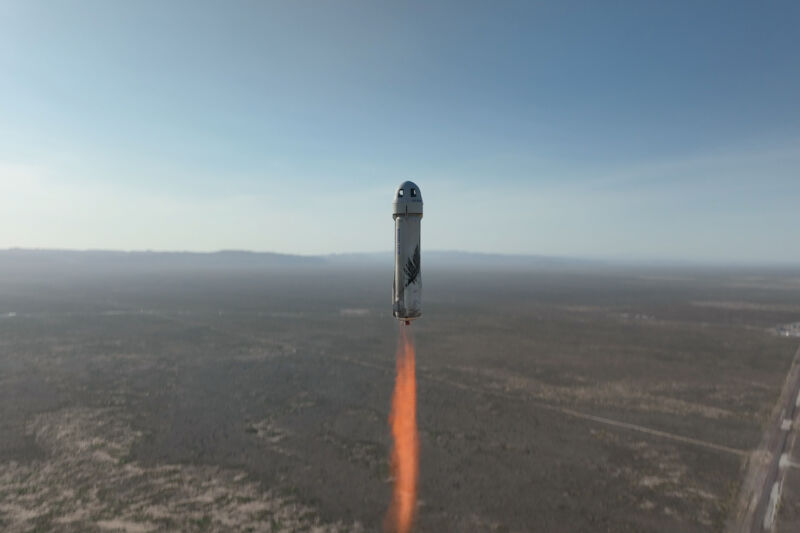
More than four months have passed since the launch of Blue Origin's New Shepard rocket ended in failure. No humans were onboard the vehicle because it was conducting a suborbital scientific research mission, but the failure has grounded the New Shepard fleet ever since.
The rocket's single main engine failed about one minute into the flight, at an altitude of around 9 km, as it was throttling back up after passing through the period of maximum dynamic pressure. At that point a large fire erupted in the BE-3 engine, and the New Shepard capsule's solid rocket motor-powered escape system fired as intended, pulling the capsule away from the exploding rocket. The capsule experienced high G-forces during this return but appeared to make a safe landing.
Three days after this accident with the New Shepard-23 mission, the bipartisan leadership of the House Subcommittee on Space and Aeronautics sent a letter to the Federal Aviation Administration, calling for a thorough investigation. In an interview with Ars later that month, the chair of the subcommittee, US Rep. Don Beyer (D-Va.), urged Blue Origin to be transparent.
"I’m heavily in favor of transparency, and I’m hoping that the FAA comes through pretty quickly with this," Beyer said. "I would strongly encourage Blue Origin to be as transparent as possible, because that builds trust. It doesn’t have to be overnight, but it would be nice to keep people updated on the progress they’re making."
The company has not heeded this advice. Founded by Jeff Bezos more than two decades ago, Blue Origin has largely been non-transparent in its activities during its existence, only rarely offering glimpses of its work through carefully choreographed public relations campaigns. Bezos almost never speaks with space journalists about the company's activities. This has continued with the New Shepard-23 investigation. To date, Blue Origin has said nothing publicly about the failure, its investigations, or the next steps.
Based on an application filed with the Federal Communications Commission last week, it appeared that Blue Origin might be targeting a time period from April 1 to June 1 of this year for its next New Shepard flight. However, a spokesperson for the company said not too much should be read into this date, as it is not tied to a specific launch. "As a matter of course, we submit rolling FCC license requests to ensure we have continuous coverage for launches," the spokesperson said.
Another question is whether this will be an uncrewed or a crewed mission. At the time of the accident, Blue Origin was flying two different New Shepard systems. The RSS H.G. Wells capsule was flying science missions on Booster 3, and the newer RSS First Step was flying crewed missions on Booster 4.
Booster 3, which launched the failed mission in September, was the company's oldest operational rocket, making its debut in December 2017. The company has used its newest rocket, Booster 4, exclusively for human launches. It has some modifications from Booster 3 to qualify it as a human-rated rocket.
Blue Origin could choose to fly a crewed mission on Booster 4, an uncrewed test flight on the rocket, or debut a new booster with modifications made as a result of learnings from the New Shepard-23 accident investigation. The company did not respond to queries about which rocket would fly next and whether people would be onboard.
reader comments
133